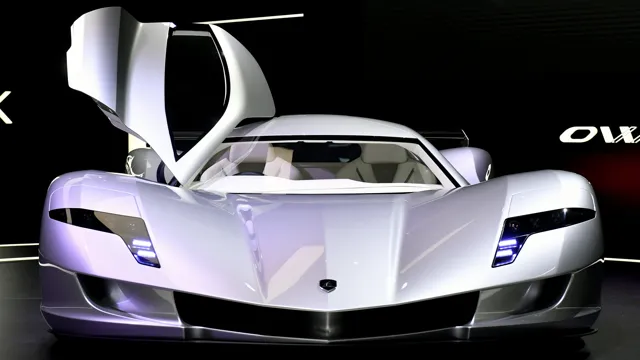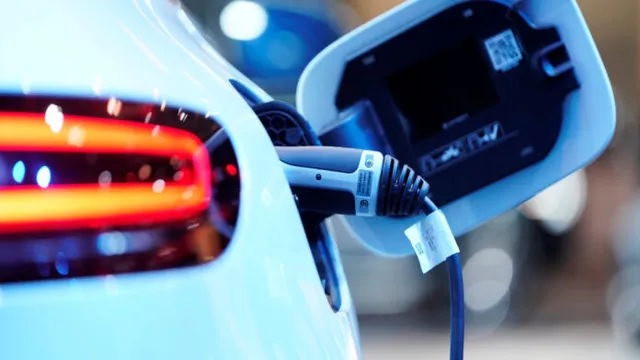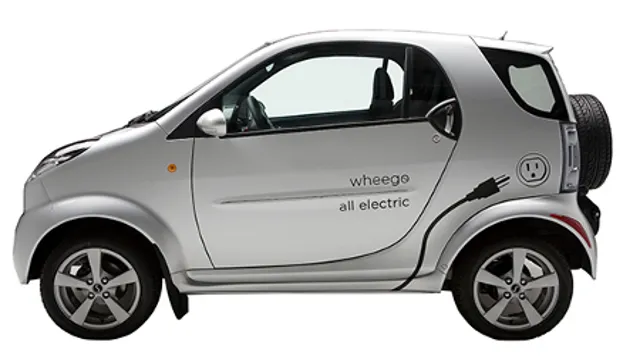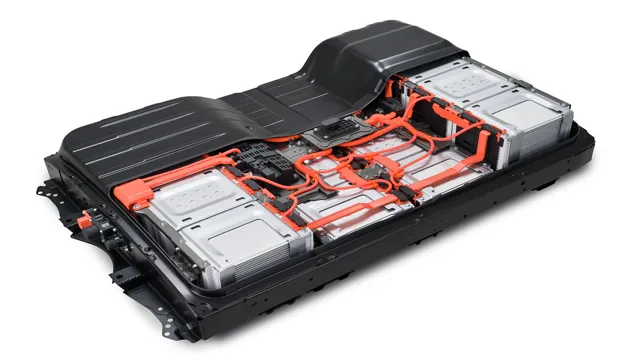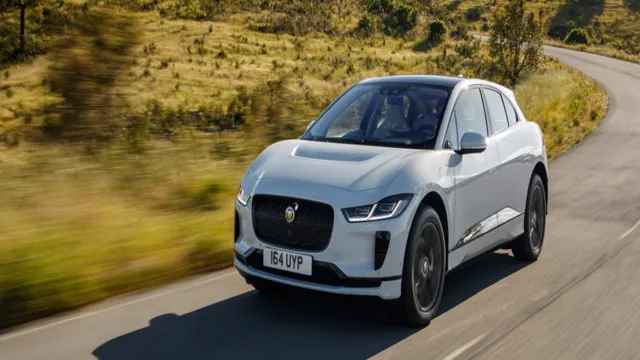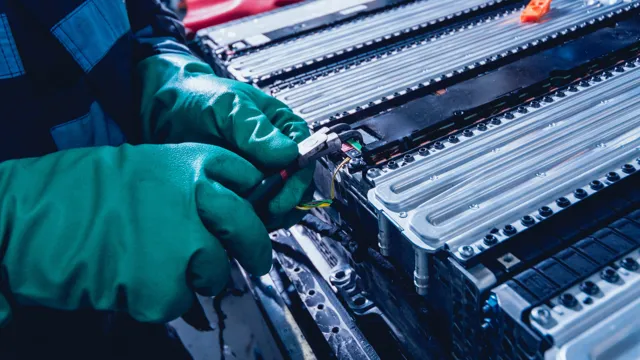Revolutionizing the Road: Exploring the Advancements of Japanese Electric Car Technology
Electric cars have been gaining popularity in recent years, and it’s no surprise why. They offer a more eco-friendly and sustainable mode of transportation while providing a quiet, smooth ride. You may be familiar with popular electric car manufacturers such as Tesla, but have you ever wondered what electric car technology looks like on the other side of the world? In this blog post, we’re going to explore Japanese electric car tech and what innovations they have brought to the table.
From their unique charging infrastructure to their advancements in battery technology, Japan’s electric cars are truly a sight to behold. So buckle up and join us on an exciting adventure into the world of Japanese electric car tech.
History of Electric Cars in Japan
Japanese electric cars technology has a rich history that spans several decades. In the 1970s, Japanese car manufacturers began to develop electric vehicles (EVs) due to the oil crisis and the need to reduce carbon emissions. These early EVs were typically small and had limited range.
However, as battery technology improved, Japanese companies began to produce EVs with longer range, such as the Nissan Leaf and the Mitsubishi i-MiEV. In recent years, Japan has also become a leader in developing hydrogen fuel cell vehicles, such as the Toyota Mirai. The Japanese government has promoted EVs and other low-emission vehicles through subsidies and tax incentives, and the country has one of the highest rates of EV adoption in the world.
Overall, Japan’s expertise in electric car technology has made it a major player in the global transition to sustainable transportation.
From Electric Trams to Modern EVs
Electric Cars in Japan Japan has a rich history of utilizing electric technology in transportation. Electric trams were introduced in the late 19th century, and by the early 20th century, electric cars were common on the streets of Japanese cities. In the 1970s, as concerns about pollution and energy security grew, Japan began promoting the use of electric vehicles.
While initial efforts were focused on small electric vehicles for practical use, such as for postal delivery and parking enforcement, in recent years the focus has shifted to the development of high-performance electric sports cars and luxury vehicles. Today, Japan is a leader in the development and production of electric vehicles, with major automakers such as Toyota, Nissan, and Honda all offering electric models. The country also has a nationwide network of rapid charging stations, making it one of the most EV-friendly nations in the world.
With the government’s goal of a “carbon-neutral” society by 2050, Japan’s electric vehicle industry is set to continue its growth and evolution.
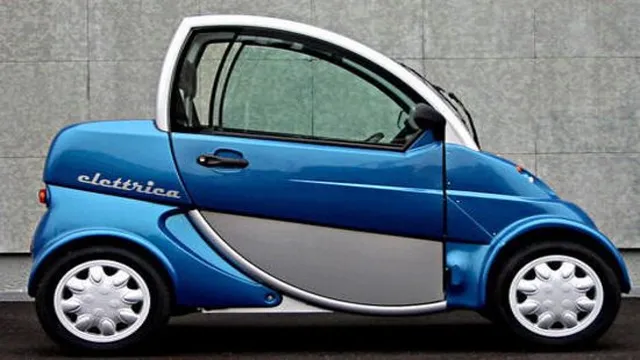
The State of the Japanese EV Market
The Japanese electric car market has been steadily increasing in recent years, with manufacturers such as Nissan, Toyota, and Honda leading the charge with their innovative technologies. One key development has been the improvement in battery technology, resulting in longer driving ranges and faster charging times. Additionally, Japanese automakers are placing a strong emphasis on safety features, with many EV models boasting advanced driver-assistance systems to prevent accidents on the road.
The Japanese government has been actively supporting the expansion of the EV market, offering incentives and subsidies to both buyers and manufacturers. However, despite these efforts, the market still faces some hurdles, such as limited charging infrastructure and high initial costs for consumers. Nevertheless, with the continuous advancements in technology, the future looks bright for the Japanese EV market and the potential for a more sustainable future on the roads.
Sales, Trends, and Innovations
The Japanese EV market has been experiencing a surge in demand recently, as more and more consumers opt for eco-friendly vehicles. With the government pushing for a carbon-neutral society by 2050, manufacturers have been quick to respond. In fact, many of the major car companies in Japan have launched electric vehicles in recent years.
Sales have been steadily increasing as well, with over 10,000 electric cars sold in the country in May 2021 alone. However, the market still faces challenges such as the lack of charging infrastructure and the high cost of EVs compared to traditional vehicles. Nevertheless, with the trend towards sustainability, it is expected that the Japanese EV market will continue to grow.
Toyota’s Contribution to Electric Vehicle Tech
When it comes to Japanese electric car technology, Toyota is a company that cannot be ignored. They have been making strides towards a cleaner future since the unveiling of their Prius hybrid in 199 Since then, Toyota has continued to be at the forefront of the industry with their development of hybrid and electric vehicles, as well as the infrastructure to support them.
Their latest contribution to the electric vehicle market is the Toyota bZ4X, an all-electric crossover SUV that is expected to hit the market in 202 But Toyota’s approach to electric vehicles goes beyond just producing cars. They are also working on developing solid-state batteries, a technology that promises to significantly increase the range and charging speed of electric vehicles.
With their commitment to sustainable transportation, Toyota’s contribution to electric vehicle technology will continue to drive innovation and push the industry towards a greener future.
The Prius and Beyond
Toyota’s Prius has become synonymous with hybrid electric vehicles, and for good reason. The Prius has been a game-changer in the industry, challenging traditional gasoline-powered vehicles and paving the way for electric vehicles (EVs) to become mainstream. Toyota has continued to push the boundaries of EV technology beyond the Prius, including the development of hydrogen fuel cell vehicles and plug-in hybrids.
In fact, Toyota recently announced plans to release 15 new battery-electric vehicles, including seven Toyota-badged models. With Toyota’s commitment to eco-friendly vehicles, we can expect to see even more exciting developments in the world of EVs in the near future.
Nissan and the LEAF: Revolutionizing EV Design
Japanese electric cars technology has been revolutionized by Nissan’s LEAF. The LEAF pioneered a new era of affordable, mass-market electric vehicles back in 2010, with its sleek design and impressive range. It brought electric cars into the mainstream, making them accessible to a wider audience.
One of the key innovations of the LEAF was its battery technology. The use of lithium-ion batteries, then still relatively new to the automotive industry, allowed for a longer range and shorter charging time. Nissan also incorporated regenerative braking and other energy-saving features to maximize efficiency.
This focus on energy efficiency and sustainability has made the LEAF a popular choice among eco-conscious drivers. As Nissan continues to advance its EV technology, the future looks bright for Japanese electric cars. With Nissan’s commitment to innovation and sustainability, we can expect even more game-changing models in the years to come.
Innovative Battery Tech and Safety Features
When it comes to electric vehicle (EV) design, Nissan and its LEAF model are leading the way with innovative battery technology and safety features. The LEAF uses a lithium-ion battery that is both powerful and efficient, providing drivers with a range of up to 226 miles on a single charge. But what sets the LEAF apart is its advanced safety features, including its ProPILOT Assist system, which helps drivers stay centered in their lane and maintain a safe distance from other vehicles.
Additionally, the LEAF’s e-Pedal allows drivers to accelerate and decelerate with just one pedal, making the driving experience smoother and more intuitive. With the LEAF, Nissan has revolutionized the EV industry, creating a safer and more convenient way to travel. So, if you’re looking for an EV that is both eco-friendly and packed with cutting-edge features, the LEAF is definitely worth considering.
Mitsubishi’s Game-Changing Electric SUV
Japanese electric cars technology is paving the way for an environmentally friendly future. Mitsubishi’s game-changing electric SUV is a prime example of this innovation. Unlike other electric vehicles, the Mitsubishi electric SUV utilizes a unique drivetrain that maximizes energy efficiency and acceleration.
The innovative technology provides a smooth and quiet drive while reducing harmful emissions. With a range of up to 400 kilometers on a single charge, the Mitsubishi electric SUV is perfect for both long and short expeditions. The vehicle also features state-of-the-art safety technology, such as lane departure warning and forward collision mitigation.
Japanese car manufacturers are committed to sustainable driving solutions, and the Mitsubishi electric SUV is proof of that commitment. By utilizing cutting-edge technology and efficient design, Mitsubishi is leading the way in the clean energy revolution.
The Outlander PHEV and Its Impact on the EV Market
The Outlander PHEV is a game-changer in the electric SUV market. Mitsubishi has managed to create a vehicle that provides a unique blend of electric and gasoline technology to create a practical and environmentally sustainable option for consumers. With a fully charged battery, the Outlander PHEV can travel up to 22 miles on electric power alone, before switching to gasoline, allowing for a total range of up to 310 miles.
This means that drivers can commute to and from work on electric power, while still having the option of using gasoline for longer journeys. Furthermore, the Outlander PHEV’s impact on the EV market cannot be understated. Its release in 2014 brought attention to electric SUVs, and its success has led to other carmakers adopting similar technology in their vehicles.
The Outlander PHEV is a perfect example of the kind of innovation and practicality that is needed to truly transform the automotive industry.
Future Directions for Japanese EV Technology
Japanese electric cars technology has undoubtedly been at the forefront of the industry, with brands such as Nissan, Toyota, and Honda consistently leading the way in innovation. However, there is still room for growth and improvement in this field. Japan’s electric car manufacturers are exploring new battery technologies with longer ranges and quicker charging times, as well as developing more efficient electric motors.
In addition, they are taking a more holistic approach to the design of electric vehicles, focusing on creating cars that are not only environmentally friendly but also stylish and practical. With the increased focus on reducing carbon emissions and the high demand for electric vehicles, it is exciting to see the direction in which Japanese electric car technology is heading. As electric cars continue to become more popular, we can expect to see even more impressive advancements in this field from Japanese automakers.
High-Speed Charging, Autonomous Driving, and More
When it comes to electric vehicle technology, Japan is at the forefront of innovation. One area that Japanese car manufacturers are focusing on is high-speed charging. This means developing fast-charging infrastructure that can replenish an EV’s battery in a matter of minutes, rather than hours.
Nissan, for example, has developed a new charger that can provide up to 130 miles of range in just 10 minutes. Another area that Japanese EV technology is advancing in is autonomous driving. Honda is working on a new system that utilizes artificial intelligence and machine learning to improve the accuracy of self-driving systems.
This will ultimately help to increase safety and reduce the likelihood of accidents. As the electric vehicle market continues to grow, we can expect to see even more exciting developments from Japanese car manufacturers.
Closing Thoughts on Japanese Electric Car Tech
When it comes to electric car technology, there’s no denying that Japan has been at the forefront of innovation. Japanese automakers like Toyota, Nissan, and Mitsubishi have been investing heavily in electric cars for years, and it shows in the quality of their vehicles. From the groundbreaking Toyota Prius Hybrid to the sleek Nissan Leaf, Japanese companies have consistently delivered electric cars that are efficient, reliable, and affordable.
What’s especially impressive about Japanese electric car tech is the way it balances practicality with sustainability. Many Japanese electric cars rely on regenerative braking technology to recharge their batteries, which means they generate electricity every time you hit the brakes. This is just one example of how Japanese electric car technology is both cutting-edge and environmentally friendly.
Overall, if you’re in the market for an electric car, it’s definitely worth considering a Japanese model. With their advanced tech and commitment to sustainability, they’re some of the best electric cars on the market today.
Conclusion
In the race towards a more sustainable future, Japanese electric car technology is leading the charge. With pioneering advancements in battery technology, regenerative braking systems, and efficient electric motors, it’s no wonder that Japan is at the forefront of the electric vehicle movement. But what sets Japanese electric cars apart is not just their technical prowess, but also their thoughtful design and meticulous attention to detail.
From the Zen-like serenity of the interior to the oh-so-cute exterior styling, Japanese electric cars are as charming as they are efficient. So while other countries may be playing catch-up in the electric car race, Japan is already crossing the finish line in style.
FAQs
What is the current state of Japanese electric car technology?
Japanese electric car technology is considered to be highly advanced, with companies like Nissan, Toyota, and Honda leading the way in development and production.
How does Japanese electric car technology differ from that of other countries?
Japanese electric car technology tends to focus on efficiency, range, and safety, utilizing advanced battery technology and aerodynamic design to maximize performance.
What impact has Japanese electric car technology had on the global automotive market?
Japanese electric car technology has helped to drive the growth of the electric vehicle market, with a number of innovative models attracting new customers and setting new standards for performance and sustainability.
What are the challenges facing Japanese electric car technology in the future?
One challenge facing Japanese electric car technology is the need to develop new, more efficient battery technologies that can provide longer ranges and shorter charging times. Another challenge is the need to reduce costs while maintaining high levels of quality and reliability.
